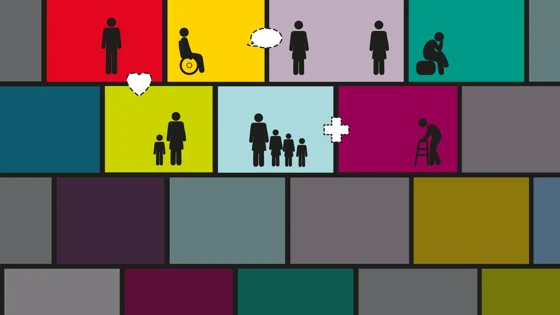Poverty, resilience and social housing: learning from those in disadvantaged communities

Contents
Over the past 25 years, LSE Housing and Communities, a small research unit within the Centre for the Analysis of Social Exclusion (CASE) at LSE, has specialised in disadvantaged communities; declining cities hit by deindustrialisation; and knowledge exchange based on grounded research. The disadvantaged neighbourhoods we work in are often dominated by social renting, suffer from inadequate maintenance, generally lack effective local housing management, and experience high levels of nuisance, such as antisocial behaviour and graffiti.
These areas are home to more resilient communities than is often reported in the media, however, with social landlords, often local councils or housing associations, that go far beyond simply providing "bricks and mortar" solutions to people’s housing needs.
In order to understand and document in-depth the experience of communities living and bringing up children in the poorest areas, LSE Housing and Communities, with CASE, conducted two longitudinal studies over 10 years from 1998 to 2008. Through documenting how 200 families coped with really difficult conditions, we learnt that many factors helped them, beyond bricks and mortar housing itself, including neighbourhood services, safe spaces for children to let off steam, good caretaking and environmental care, preventative community policing, knowing your neighbour, and having an accessible point of contact and advice.
Social landlords…go above and beyond the basics to help their communities thrive.
Social landlords contribute far more than accommodation
When the government, under austerity budgets from 2010, cut funding for social landlords and for multiple neighbourhood services, these communities suffered a significant loss of support. We set out to learn how these changes and cuts were affecting what we call "Housing Plus" - this is the added value social landlords contribute to sustaining communities that need more than simply a roof over their heads.
As part of our work, we organised a series of residential learning workshops, in partnership with the National Communities Resource Centre at Trafford Hall, in order to give frontline staff and decisionmakers the chance to learn from each other’s experience and showcase their efforts to counter the impact of austerity on their most disadvantaged communities. We also ran dedicated workshops for residents and support workers from these areas, to get their perspectives on similar issues. Through these workshops, which we call Think Tanks, we learnt how far social landlords, operating at both senior management and frontline levels, go above and beyond the basics to help their communities thrive.
Interestingly, we have also been able to attract government officials and representatives to attend our events. As they usually operate so far away from the delivery point of their policies, it is clear that they learn a huge amount from participants. Being able to facilitate dialogue in this way is hugely helpful as this is obviously self-reinforcing.
Since 2015, when we launched the Housing Plus Academy, we have run over 50 workshops with nearly 2,000 participants. This creates ripples of learning and action across communities all over the country.
We now face the huge challenge of halving energy use in buildings by 2030…We have therefore set up an Energy Plus Academy.
Learning the lessons from the Grenfell Tower fire
When the Grenfell Tower fire happened, we happened to be holding a Think Tank at Trafford Hall, home to the National Communities Resource Centre in Cheshire, on the theme of estate regeneration. This put us in the frontline of the disaster. The horrendous consequences of ignoring residents’ views and neglecting frontline housing management, particularly for those living in tower blocks with very little fire safety provision, quickly became clear.
Because of our links to struggling communities, we were asked both to help the residents of the Lancaster West estate, where Grenfell Tower is situated, and to run a national programme of workshops to help tenants, landlords and related services from all over the country to increase safety and improve the management of multi-storey blocks, of which around 30,000 are owned by social landlords.
The Lessons from Grenfell programme led to us playing a highly active, and sometimes leading, role both in the local authority response to the disaster, and in the government’s many-sided follow up to address building safety, fire prevention procedures, local management, and resident involvement, leading to the bigger role for residents with social landlords, the revision of building regulation, and the ambition to upgrade all multi-storey buildings to full fire safety standards.
This hugely ambitious set of reforms were shaped by many factors, but LSE Housing and Communities, through the Housing Plus Academy workshops and its original research and reporting, has contributed in many ways to a new direction for social landlords – closer to the ground, more resident-focussed, more attentive to the detail, and more concerned about safety.
We now face the huge challenge of halving energy use in buildings by 2030. Building on our work to date, we have therefore set up an Energy Plus Academy, under the umbrella of the Housing Plus Academy. The ripple spreads wider. We aim, through supporting community-based action on climate change, to transform the performance of social landlords, combining energy saving with safety – a most ambitious target. Luckily, the government is supporting this through the Social Housing Decarbonisation Fund, worth around £3.8 billion.
Our work on Housing Plus – and Energy Plus – is now being turned in to a new book, Beyond Bricks and Mortar which is due to be published in 2023.
Download a PDF version of this article




